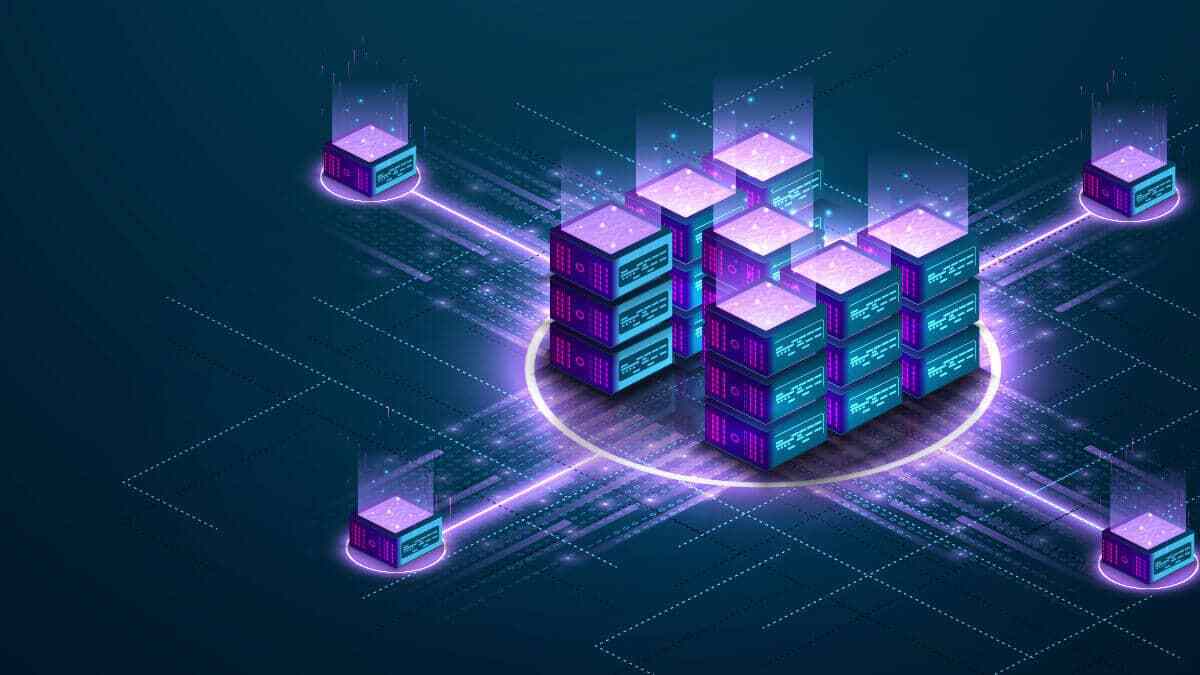The Power of Blockchain: Revolutionizing Industries and Empowering Individuals.
Introduction: In the past decade, blockchain technology has emerged as a transformative force, captivating industries and individuals alike with its potential to revolutionize various sectors. Initially known for powering cryptocurrencies like Bitcoin, blockchain has evolved into a versatile tool that can enhance transparency, security, and efficiency across a wide range of applications. In this blog post, we will explore the fundamental concepts of blockchain and delve into its impact on industries, individuals, and the future of technology.
Understanding Blockchain: At its core, blockchain is a decentralized and distributed ledger technology that enables the secure and transparent recording of transactions. Unlike traditional centralized systems, where a single authority validates and maintains records, blockchain operates through a network of computers known as nodes. Each node has a copy of the entire blockchain and participates in validating and verifying transactions.

The blockchain’s strength lies in its immutability and transparency. Once a transaction is recorded on the blockchain, it becomes a permanent part of the ledger and cannot be altered or tampered with. This property makes blockchain highly secure and resistant to fraud or unauthorized changes.
Implications for Industries:
- Financial Services: Blockchain has the potential to revolutionize the financial industry by eliminating intermediaries, reducing transaction costs, and enhancing security. Smart contracts, self-executing contracts with predefined conditions, can automate complex financial agreements, streamline processes, and mitigate risks.
- Supply Chain Management: Blockchain enables end-to-end traceability and transparency in supply chains, enhancing efficiency and reducing fraud. By recording every step of a product’s journey on the blockchain, stakeholders can ensure authenticity, optimize logistics, and prevent counterfeiting.
- Healthcare: Blockchain can improve patient data management, interoperability, and privacy in the healthcare sector. By securely storing medical records on the blockchain, patients can have better control over their data, while healthcare providers can access accurate and up-to-date information for diagnosis and treatment.
- Voting Systems: Blockchain has the potential to transform voting systems by providing secure, transparent, and tamper-resistant platforms. By leveraging blockchain’s immutability, governments can enhance the integrity of elections and improve trust in democratic processes.

Empowering Individuals: Beyond its impact on industries, blockchain technology empowers individuals in several ways:
- Financial Inclusion: Blockchain allows people without access to traditional banking systems to participate in the digital economy. By providing a secure and decentralized platform for financial transactions, blockchain enables individuals to store and transfer value, access loans, and engage in economic activities.
- Data Ownership and Privacy: With blockchain, individuals can regain control over their personal data. Instead of relying on centralized entities to store and manage personal information, blockchain enables individuals to selectively share data while maintaining ownership and privacy.
- Intellectual Property Protection: Blockchain provides a robust platform for copyright protection, royalty tracking, and digital rights management. Artists, musicians, and content creators can use blockchain to ensure the authenticity and ownership of their work, enabling fair compensation and eliminating unauthorized use.

The Future of Blockchain: As blockchain technology continues to evolve, exciting developments lie ahead. Some emerging trends include:
- Interoperability: Efforts are underway to enhance interoperability between different blockchain networks. This would enable the seamless transfer of assets and data across multiple platforms, fostering collaboration and expanding the possibilities for decentralized applications.
- Scalability: Blockchain networks are exploring solutions to improve scalability and handle higher transaction volumes. Layer-2 protocols, sharding, and advancements in consensus algorithms aim to address the current limitations and enable blockchain to handle mainstream adoption.
- Sustainability: With the growing concerns about energy consumption in blockchain networks, efforts are being made to develop more energy-efficient consensus mechanisms and utilize renewable energy sources to power blockchain infrastructure.

Exploring New Frontiers: Emerging Technologies Based on Blockchain
Blockchain technology has already made a significant impact across various industries, but its potential goes beyond the applications we currently know. As technology continues to evolve, new frontiers are being explored, leading to the development of exciting emerging technologies that leverage the power of blockchain. In this blog post, we will dive into some of these groundbreaking innovations and explore their potential implications for the future.
- Decentralized Finance (DeFi): Decentralized Finance, or DeFi, represents a paradigm shift in the traditional financial landscape. Built on blockchain platforms, DeFi aims to replace intermediaries like banks and brokers with smart contracts, providing open and permissionless financial services. DeFi encompasses various applications, including decentralized lending, borrowing, insurance, and asset management, offering individuals greater control over their financial transactions and removing barriers to entry.
- Non-Fungible Tokens (NFTs): NFTs have taken the digital world by storm, leveraging blockchain technology to authenticate and tokenize unique digital assets. Unlike cryptocurrencies, which are fungible and interchangeable, NFTs represent one-of-a-kind items, such as artwork, collectibles, virtual real estate, and even digital rights to music or videos. Blockchain ensures the scarcity, provenance, and ownership of these assets, creating new opportunities for creators, collectors, and investors in the digital space.
- Decentralized Identity (DID): Decentralized Identity solutions leverage blockchain to give individuals greater control over their personal data and online identities. DID allows users to manage and authenticate their identities across different platforms without relying on centralized authorities. By using cryptographic keys and distributed ledger technology, blockchain-based DID systems enhance privacy, security, and user autonomy, enabling seamless and trusted interactions in the digital world.

- Blockchain in the Internet of Things (IoT): Integrating blockchain with the Internet of Things (IoT) creates a secure and transparent ecosystem for connected devices. Blockchain ensures the integrity and traceability of data generated by IoT devices, mitigates security risks, and facilitates peer-to-peer transactions between devices. This combination enables secure supply chain management, efficient energy grid management, autonomous machine-to-machine transactions, and more.
- Blockchain for Sustainability: Blockchain technology is being harnessed to address sustainability challenges, such as carbon footprint tracking, renewable energy trading, and transparent supply chains. By creating immutable and auditable records, blockchain enables the transparent tracking of carbon emissions, certifies the origin of renewable energy, and promotes sustainable practices throughout supply chains. These applications have the potential to accelerate the transition toward a more sustainable and environmentally conscious future.
- Decentralized Autonomous Organizations (DAOs): DAOs are organizations that operate based on smart contracts and decentralized decision-making. They allow communities to collaborate, govern, and manage resources without traditional hierarchical structures. Blockchain provides the necessary infrastructure to enable transparent voting, funding, and decision-making processes within DAOs, offering new models for collective ownership, governance, and value distribution.
The emergence of new technologies based on blockchain demonstrates the vast potential of this groundbreaking technology. From revolutionizing finance with DeFi and transforming digital asset ownership with NFTs to enhancing privacy and security with decentralized identity, blockchain-based innovations are reshaping industries and empowering individuals. As these technologies continue to evolve and mature, they hold the promise of creating a more decentralized, inclusive, and efficient future for various sectors and society as a whole.
If you need any assistance with blockchain technology, don’t hesitate to contact us at Ozosoft. Our team of experts is well-versed in the intricacies of blockchain and can provide valuable insights, guidance, and solutions tailored to your specific needs. Whether you are looking to integrate blockchain into your business processes, explore the potential of decentralized applications, or navigate the complexities of smart contracts and digital assets, we are here to help. Reach out to us at Ozosoft, and let’s embark on a journey to unlock the full potential of blockchain technology together.



